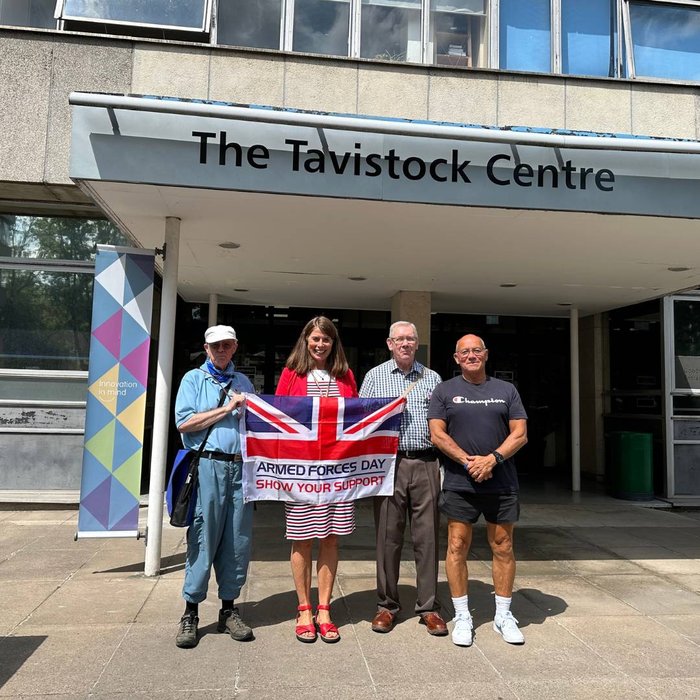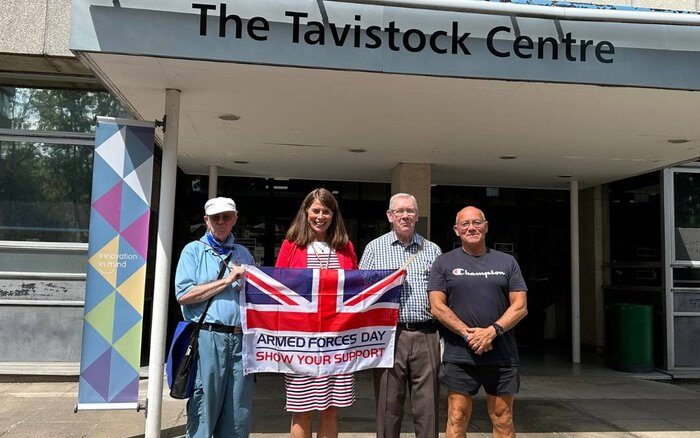
News
‘We’re all part of a jigsaw’ – Army Veterans at Tavistock and Portman NHS FT signs Armed Forces Covenant
We need each other and people in the armed forces community are encouraged to ask for help if they’re struggling with their mental health, say veterans, at the start of Armed Forces Week.

Peter McCafferty, a veteran who manages three of London’s Armed Forces Veterans Breakfast Clubs, was speaking at an event to mark the Tavistock and Portman NHS Foundation Trust signing the Armed Forces Covenant. The Covenant is a legally binding agreement which aims to make sure that those who have served or are currently reservists, and their families, are not disadvantaged when they access healthcare, education or housing provisions, compared to the rest of the population.
“30 years ago I left the armed forces and I ended up on the streets. Returning to civilian life is the hardest thing when you’ve served because you can never be a civilian again. As a veteran we want to talk to our own, and the hardest part is admitting that we have a problem. The hardest thing was for me to admit that I had post-traumatic stress disorder. My arm had to be twisted for me to get support. Organisations like ours and those here can help. We will help but we can’t work miracles, and we need everyone else’s help. We’re all part of a jigsaw. Sometimes there’s a bit of jigsaw pieces missing and sometimes that’s the person who hasn’t come along,” said Peter.
Not being able to accept that one might need support was a common theme at the event, which was attended by veterans, voluntary sector organisations including the Poppy Factory, the Defence Medical Welfare Service, Op Courage, and the Veterans Covenant Healthcare Alliance (VCHA).
A female veteran in the audience agreed. “Half of the battle was getting past thinking ‘I’m a veteran, I don’t need help.’ But once I got in touch with Op Courage, the service did a lot to help me. Op Courage picked me up.”
Working together
That’s exactly why veteran Neil Pressley uses his lived experience to support other veterans so they know they’re not alone. Neil had served in the armed forces for 12 and a half years, and struggled to transition back into civilian life once he left the army.
“I didn’t know what services and support were available, so I had to fight my way through the system. The support I received from Op Courage was very helpful, and now I help others, even if it’s with something as simple as getting to and from an appointment. As a veteran we know that physical health and social problems impact on mental health,” said Neil, a peer support worker with Op Courage.
Op Courage is the name for the Veterans Mental Health and Wellbeing Service, which brings the NHS, and charities together to care for those who have served in the armed forces.
“Veterans can be stoic and not want to ask for help. They can often struggle with a lot of needs because they’ve been on their own for such a long time,” explained Tim Riley, a psychological therapist who also works with the organisation Op Courage.
Dr Rachel James, Clinical Director at the Tavistock and Portman, said the Trust was looking forward to working with the armed forces community to improve NHS services for veterans and their families, support employment opportunities, and making sure its education and training courses are accessible for the armed forces community.
Chief Executive Michael Holland opened the event by sharing the Trust’s 100 year history and connections to the First and Second World Wars, and it’s rich history of working with veterans. Gary Sell, a veteran now working with the VCHA, also spoke on the importance of the covenant and his lived experience.
